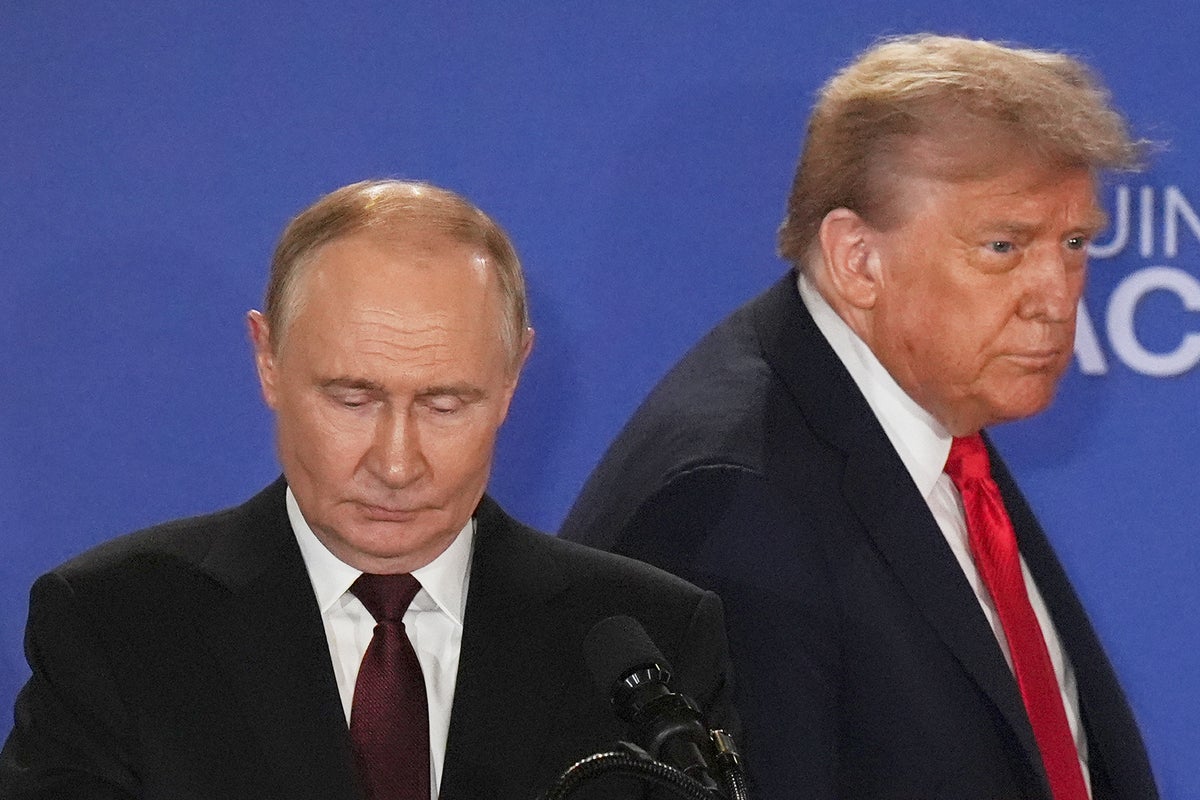The highly-anticipated meeting between US President Donald Trump and Russian leader Vladimir Putin had been hailed as an essential and crucial step in forging a path towards peace in wartorn Ukraine.
Three hours later, both leaders emerged claiming that the summit had been a “success” and “productive”. Yet no ceasefire deal has been struck, and little information has been given as to what was actually discussed behind closed doors.
In Moscow, the meeting has been praised as a success, while in the West, it has left more questions than answers.
Here are the top takeaways from Alaska:
Red carpet treatment for Putin
In what is likely to leave a bitter taste in the mouths of Ukrainians, Putin’s arrival in Anchorage was given nothing short of a VIP celebrity welcome.
For the Russian leader, it marked an astounding return to the world stage, having been largely shunned from the majority of Western nations since he invaded Ukraine in February 2022. It has been 10 years since he was last in America, and has been threatened with an arrest warrant by the International Criminal Court if he were to travel to a member state.
Over the last three years, his travel has been restricted to friendly countries such as Belarus, North Korea and China.
The red carpet rollout has been hailed as a victory in Moscow, with the two leaders enthusiastically sharing two handshakes, with Putin greeted as if he were a close friend and ally.
In what appeared to be an unscripted moment, Putin decided to travel in Trump’s armoured limousine known as ‘The Beast’, rather than taking his own presidential car. In footage of them leaving the airbase, Putin can be seen sitting in the backseat and laughing.
Progress made but no ceasefire deal on the table
During a press conference after the three-hour meeting, which saw Putin and Trump discuss terms of ending the war with their closest aides, both leaders remained close-lipped about what had occurred behind closed doors.
“We had an extremely productive meeting, and many points were agreed to,” Trump told reporters. “There are just a very few that are left. Some are not that significant. One is probably the most significant, but we have a very good chance of getting there. We didn’t get there, but we have a very good chance of getting there.”
However, he didn’t share any further details about what had been agreed, with nothing of substance revealed.
Putin said the negotiations were “held in a constructive atmosphere” but repeated that the “root causes” of the conflict must be eliminated to achieve peace.
This is likely to have caused alarm bells in Kyiv, given that Moscow has previously stated this to be Ukraine’s formal renunciation of Nato membership, as well as agreeing to demilitarisation, new elections, no foreign military involvement and recognition of Russian sovereignty over the occupied Ukrainian regions.
Potential Zelensky-Putin-Trump meeting on the cards
After their summit, nothing was mentioned about the prospect of a trilateral meeting, only that President Trump had a number of people to call, including Zelensky.
“We’ll speak to you very soon, and probably see you again very soon,” Trump said. In a rare comment in English, Putin responded: “Next time in Moscow.”
In a Fox interview with host Sean Hannity a short while later, Trump said both Putin and Zelensky would like him to be present at a potential second meeting.
“They both want me there, and I’ll be there,” he said.
In a post on Truth Social, he wrote: “President Zelenskyy will be coming to D.C., the Oval Office, on Monday afternoon. If all works out, we will then schedule a meeting with President Putin.”
An unusually quiet Trump
For once, Trump took the backseat during the press conference in Alaska, allowing Putin to speak first. The Russian leader launched into a condensed history of Alaska’s past as a Russian territory, taking several minutes before addressing the “situation in Ukraine”.
Despite the context of the summit, Trump also avoided any direct talk of the situation in Ukraine, only referencing that “five, six, seven thousand people a week” are killed.
There were no questions from reporters, and both leaders kept their statements vague, stating that “great progress” had been made with little detail as to what that progress entailed.
In one victory for Moscow, there was no mention of any “severe consequences” such as further economic sanctions which Trump had threatened if a ceasefire deal wasn’t reached.

